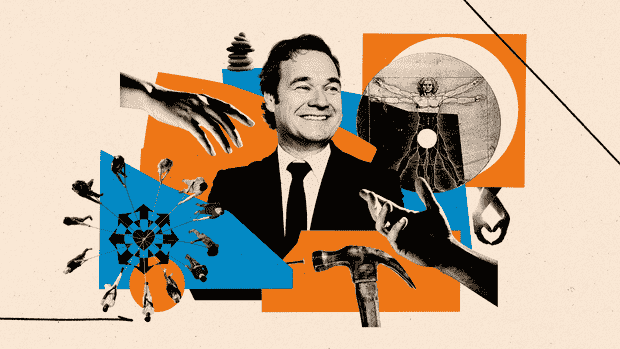Frank Dopheide is the founder and managing director of the management consultancy human unlimited, which specializes in the topic of “Purpose”. Previously, he was, among other things, spokesman for the management of the Handelsblatt Media Group and chairman of GRAY Worldwide.
(Photo: Klawe Rzezcy, Getty Images)
In the world of business, the cool mind has taken the seat in the executive chair and boldly claims it sits in the executive office and makes decisions there. In truth, the mind squats down the hall in the press department. He announces and explains the result eloquently, but is usually not even in the room when the decision is made.
Our country’s top managers are more guided by their feelings than you might think. And this is where new problems arise.
The American professor Brené Brown measured our emotional world and localized 87 emotions that enliven us and our lives. For five years she accompanied people and examined which emotions people can clearly recognize, assign and name.
The result was terrifying. Just three emotions were directly decodable: happiness, sadness and anger. Man is on the way to becoming emotionally illiterate. And that has consequences.
Because with the feeling for ourselves, the feeling for our counterpart also dries up. Communication disruptions of all kinds are the order of the day. Man no longer understands himself and the world. We see the effects every day on the streets, on social media and at staff meetings.
Throughout human history, man has always been man’s most important medium. We could read faces better than the daily newspaper. If the topics became too complicated, we relied on our instincts. Thanks to evolution.
Now we are becoming increasingly emotionally blind. Instead of reading novels, we’re sinking into WhatsApp messages today. Where we used to be able to read feelings between the lines, we now attach an emoji to the end of the message. Better safe than sorry. So that my counterpart understands that I was only joking: “Wink, wink”. The emoji is our digital cane for progressive emotional dementia. The amount of attached feeling signs grows. Where once one was enough, today it has to be five.
Corporate values are set in stone but rarely come to life
When we humans lose the ability to feel differentiation, a lot is lost: understanding, understanding and understanding. Imagine that for every decision, every piece of news, every behavior that comes your way, you can only respond with three symbols: Sunshine, Tear, Skull.
What does that mean in the professional environment? Communication disorders of massive nature and stress without end. A true story. A world market leader in the automotive world is trying to get ahead of the transformation wave with force. That’s a matter for the boss. The CEO calls his team of the world’s fifty most important managers together to get the horsepower back on the road towards the future in 48 hours.
>> Read also: What HR managers advise managers in the crisis
Numerous Powerpoint charts and Excel spreadsheets later, emotions run high. Suddenly and unexpectedly, the question of trust arises. How is the boss supposed to trust his top executives if they don’t take matters into their own hands and decide, even if the internal approval processes take longer? And in return: How can managers trust their boss if you haven’t heard anything for weeks? Trust is known to be the beginning of everything. No trust is the beginning of the end.
Trust. A feeling. A thousand misunderstandings. Everyone present should therefore write down five associations: What do I mean by trust? The bravest stood up and said her five words. None (!) of the other participants had the same five words. In fact, there wasn’t a single overlap. Everyone was talking about trust. Everyone understood and felt something different underneath.
>> Read also: Seven ideas how managers can turn luck into a success factor
In the end, they realized that it wasn’t about trust at all, but about reliability. Another topic. A different feeling. Another discussion. And much easier to solve.
Test this exercise immediately afterwards in a team call.
Start with your company values. Values are set in stone but rarely come to life. Send the values around and ask for five associations from each – it only takes two minutes. You won’t believe your eyes and ears. And you will realize that you have a communication problem. Pay attention to how you feel – it’s worth it.
More: Only work as much as necessary? What CEOs are saying about Quiet Quitting
